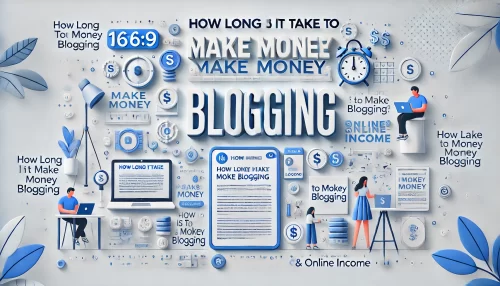In today’s digital age, there’s a constant buzz about new ways to earn money online and innovative strategies for businesses to promote their products. Among them, the question often arises, “what is affiliate marketing?” It stands out not only for its efficiency but also for the win-win opportunities it creates for both businesses and individuals.
Definition and Basics
Affiliate marketing, in its simplest form, is a performance-based marketing strategy where a business rewards one or more affiliates for each visitor or customer brought by the affiliate’s marketing efforts. Think of it as a modern version of the old “word-of-mouth” advertising, but with a digital twist.
In the vast realm of digital marketing, affiliate marketing holds a unique position. Unlike traditional advertising where businesses pay upfront for the hope of attracting potential customers, in affiliate marketing, businesses only pay when a definite action—like a sale or a sign-up—is taken. This makes it a cost-effective and risk-reduced method for companies to increase their customer base and brand visibility.
Key Components of Affiliate Marketing
The affiliate marketing model comprises several key players and components, each with a vital role to play.
Affiliates vs Merchants: At the heart of this model are the affiliates and the merchants. Merchants are the businesses or individuals who offer products or services. They’re looking for opportunities to sell more and expand their reach.
Affiliates, on the other hand, are promoters—often bloggers, influencers, or niche websites—who earn a commission for directing traffic or sales to the merchant’s site. While the merchant provides the product and handles the sale process, the affiliate uses marketing skills to attract and convince potential customers.
Importance of affiliate networks: Serving as the bridge between affiliates and merchants are affiliate networks. These platforms streamline the affiliate marketing process by providing a marketplace where merchants can list their products and affiliates can find products to promote.
More than just a meeting place, these networks handle crucial tasks like tracking sales, managing commission payouts, and providing analytics. Their role ensures transparency, reliability, and ease for both parties involved.
The History and Evolution of Affiliate Marketing
Affiliate marketing might seem like a contemporary concept, but its roots trace back further than one might think. The basic idea of earning a commission for referring customers has been around for ages. However, it took the advent of the internet to give this idea the shape we recognize today.
The 1990s witnessed the early days of online affiliate marketing. Amazon, one of the biggest names in e-commerce today, was among the pioneers. They introduced their associate program in 1996, allowing website owners to advertise products and earn a commission on sales generated through their links. This model was soon adopted and refined by other businesses, leading to the establishment of dedicated affiliate networks and more sophisticated tracking tools.
Over the years, as online shopping grew and internet usage skyrocketed, affiliate marketing expanded and diversified. Today, it’s a multi-billion-dollar industry, with countless affiliates and merchants benefiting from the symbiotic relationships it fosters.
Benefits of Affiliate Marketing
When diving into the digital world, understanding the benefits of various strategies is essential. With the rise of e-commerce and online platforms, businesses and individuals alike are constantly on the lookout for effective ways to either promote their products or earn money.
In such a landscape, what stands out is affiliate marketing. The benefits of affiliate marketing are multifaceted, offering advantages not just for the businesses but also for the individuals who promote those products.
Advantages for Merchants
At the heart of every business lies a fundamental goal: expansion. Whether it’s growing their customer base, entering new markets, or simply increasing sales, businesses are always on the move. Affiliate marketing offers merchants a unique tool to achieve this.
One of the most pronounced benefits for merchants is the capability to expand their reach. In a world dominated by online traffic, every click, every visitor counts. By partnering with affiliates, businesses can tap into varied audiences, ones they might not have accessed on their own.
Imagine having an army of promoters, each with their unique following, all directing traffic back to your product. It’s a scale of promotion hard to achieve with most other marketing strategies.
Moreover, when it comes to advertising, budgeting is a concern for most businesses, especially startups and small enterprises. Here, affiliate marketing shines again. Its cost-effectiveness is unmatched. Instead of shelling out large sums on advertising with no guaranteed returns, merchants only pay for tangible results in affiliate marketing.
Whether it’s a sale, a lead, or a click, businesses spend money only when they see action. This performance-based model ensures that their advertising dollars are well-spent, offering a higher return on investment compared to traditional advertising methods.
Advantages for Affiliates
On the flip side of this equation are the affiliates. These are individuals or entities that take on the task of promoting a merchant’s products or services. And their reasons for diving into affiliate marketing are just as compelling.
One of the foremost attractions is the earning potential. Unlike a traditional job with a fixed salary, affiliate marketing offers earnings that are directly proportional to the effort. The more sales or leads an affiliate generates, the higher the commission. This dynamic creates a sky’s-the-limit approach to income, especially for those who master the art of online promotion.
Flexibility is another advantage that cannot be overstated. Affiliates are not bound by 9-to-5 constraints. They choose when to work, how to work, and from where to work. Whether it’s a full-time endeavor or a side hustle, affiliate marketing adapts to fit the individual’s lifestyle and goals.
Lastly, affiliate marketing is a golden ticket for those looking to capitalize on niche markets. In today’s vast digital space, specific audiences with unique interests abound. Affiliates can tap into these niche markets, promoting products that resonate with a particular audience.
Not only does this increase the chances of successful sales, but it also allows for the creation of passive income streams. By establishing a strong online presence in a niche, be it through a blog, social media, or other platforms, affiliates can earn commissions with minimal ongoing effort.
How Does Affiliate Marketing Work?
In our journey through the digital realm, as businesses explore innovative strategies and individuals seek promising income avenues, a recurring inquiry is, “How does affiliate marketing work?” At first glance, the process may seem intricate.
But, when broken down, the mechanisms of affiliate marketing reveal a beautifully choreographed dance of collaboration and mutual benefit. Let’s unravel the intricacies of this dance and gain clarity on the workings of affiliate marketing.
The Affiliate Marketing Cycle
The essence of affiliate marketing rests in its cycle—a series of steps that seamlessly flow from one into the next, forming the backbone of this marketing strategy. The journey commences with the merchant, who offers a product or service. This product becomes the focal point around which the entire cycle revolves.
Next, enters the affiliate, a promoter keen on leveraging their digital presence. They select a product, resonating with their audience or personal brand, from the merchant’s offerings. This choice is paramount, as the right product can significantly amplify the potential for successful conversions.
Upon selection, the affiliate receives a unique link—a trackable URL that ensures any traffic or sales they generate can be traced back to their promotional efforts. Armed with this link, the affiliate then embarks on a mission to market the product.
They craft engaging content, perhaps a review or a tutorial, embedding the affiliate link within. As audiences interact with this content and click on the affiliate link, they’re directed to the merchant’s site.
When these redirected visitors take a desired action on the merchant’s site, be it a purchase, a sign-up, or any other predetermined action, it triggers a commission for the affiliate. This commission is the affiliate’s reward, a tangible acknowledgment of their successful marketing endeavor. The cycle culminates with the affiliate receiving their well-earned commission, often through an affiliate network or directly from the merchant.
Different Affiliate Marketing Models
While the core cycle remains consistent, the way affiliates earn their commission can vary based on different affiliate marketing models. Three predominant models dictate the commission structure in the affiliate world.
The first is the pay-per-sale model. Here, affiliates earn a commission only when the traffic they direct to the merchant’s site results in an actual sale. It’s a straightforward model—no sale, no commission. But when a sale does happen, the payouts can be quite lucrative, often a percentage of the sale amount.
Next, we have the pay-per-click model. In this approach, the focus shifts from sales to traffic. Affiliates are rewarded based on the number of clicks they can generate for the merchant’s site. The actual outcome of these clicks, whether they lead to a sale or not, doesn’t affect the affiliate’s commission. It’s all about driving traffic.
Lastly, the pay-per-lead model bridges the gap between the previous two. Affiliates in this model are compensated when the traffic they send to the merchant’s site takes a specific action, like signing up for a newsletter or filling out a contact form. It’s not as definitive as a sale, but it’s more committed than just a click.
How to Start Affiliate Marketing Today
The digital world is awash with opportunities, and among the most appealing for budding entrepreneurs and seasoned marketers alike is affiliate marketing. But how does one commence this journey? How do you start affiliate marketing today?
The process might seem daunting, but with the right approach and a step-by-step guide, anyone can harness the potentials of affiliate marketing. Allow us to be your guide on this thrilling venture.
Finding the Right Affiliate Program
Before you can begin earning, you must decide what you’re promoting. The product or service you choose can make or break your affiliate marketing success, so it’s vital to make informed decisions.
The first task is researching and selecting a niche. What are your interests? What are you passionate about? If you’re a fitness enthusiast, perhaps health products or workout plans could be your focus. Or if tech is your forte, the latest gadgets might be your calling. Choosing a niche you’re genuinely interested in not only ensures enthusiasm but also sustains interest over time.
Once you’ve pinned down a niche, the next step is to evaluate and join affiliate programs. But how do you discern which ones are worth your time? Look for programs that offer reasonable commissions, have a track record of timely payments, and provide ample support to their affiliates. Additionally, delve into reviews from other affiliates.
Their experiences can offer invaluable insights. Once you’ve shortlisted a few programs, it’s time to join. Most programs have straightforward signup processes, and before you know it, you’ll be equipped with your affiliate links, ready to commence your promotional journey.
Building a Platform for Affiliate Marketing
While having products to promote is essential, where you promote them is equally critical. Your platform is your stage, the space where you’ll engage with your audience and showcase your affiliate offerings.
The cornerstone of any successful affiliate platform is content. Whether you’re writing articles, filming videos, or crafting social media posts, your content needs to resonate with your audience. It should be relevant, engaging, and, above all, trustworthy. Remember, people buy from those they trust. Before you can convince them about a product, you need to establish a bond, a connection founded on reliability.
Now, which platform should you choose? Blogs are an excellent starting point. They offer the flexibility of long-form content, allowing for in-depth product reviews or tutorials. If you’re more visually inclined, YouTube might be your playground. Video content, with its dynamic appeal, can be potent for product showcases or demos.
For those adept at concise, impactful content, social media platforms, such as Instagram or Twitter, can be goldmines. Whichever platform you pick, ensure consistency in your content and regularly engage with your audience.
Tips for Successful Affiliate Marketing
Embarking on your affiliate marketing journey with the right product and platform is just the beginning. To truly thrive, there are best practices you’d do well to incorporate.
Content creation is an art, and its potency lies in its authenticity. While it’s tempting to embellish, always provide honest reviews and genuine recommendations. Your audience will value your candor, leading to increased trust.
Promote your content wisely. Utilize SEO techniques to make your content discoverable. Engage with your followers, answer their queries, and be present. And always remember to disclose your affiliate relationships. Transparency isn’t just ethical; it’s also a trust-builder.
Lastly, affiliate marketing is not a ‘set it and forget it’ endeavor. Stay updated with the latest trends in your niche, continually refine your strategies, and be open to learning and adapting.
Common Challenges and Mistakes in Affiliate Marketing
Embarking on the affiliate marketing journey is exciting, brimming with prospects of passive income, entrepreneurial freedom, and the thrill of promoting products you’re passionate about. But, like any venture, affiliate marketing is not devoid of hurdles.
Understanding these challenges and the mistakes that breed them is the first step toward achieving sustainable success in this domain. So, what are the common challenges in affiliate marketing, and how can you navigate them?
Pitfalls to Avoid
Affiliate marketing may seem straightforward, but numerous pitfalls await the unsuspecting marketer. One of the most recurrent mistakes is promoting irrelevant products. It’s a tantalizing prospect to promote products with hefty commissions, but if they hold no relevance to your audience, such endeavors are futile.
Audiences are savvy, and they quickly discern when a promoter’s heart isn’t in the game. Marketing products that neither resonate with your niche nor provide value to your audience can erode trust and tarnish credibility.
Another frequent misstep lies in tracking and reporting. In the exhilarating rush to promote and earn, many affiliates neglect the meticulous task of accurate tracking. Affiliate marketing thrives on precision. The correct attribution of sales to specific marketing efforts is paramount.
Overlooking tracking nuances or employing flawed tracking systems can lead to missed commissions and skewed data. And in a field where data-driven decisions are king, inaccurate reporting can spell disaster.
Overcoming Challenges
Now that we’ve delineated the challenges, let’s delve into strategies to overcome them. The world of affiliate marketing is ever-evolving, with new products, strategies, and competition emerging continually. Staying updated in the industry isn’t just advisable; it’s imperative.
Regularly peruse industry blogs, attend webinars, and engage in affiliate marketing forums. These resources often provide a treasure trove of insights, from emerging trends to innovative promotional strategies.
Yet, staying updated is but one facet of the equation. The importance of continuous learning and adaptation cannot be stressed enough. What worked yesterday might not work tomorrow. As algorithms change, audience preferences shift, and industries transform, an affiliate marketer’s ability to learn and adapt becomes their most potent weapon.
This involves not just absorbing new information but also continuously testing your strategies. Experiment with different promotional methods, evaluate their efficacy, refine, and repeat.
Conclusion
As we reach the conclusion of our exploration into affiliate marketing, it becomes evident that this isn’t just a fleeting trend or a temporary online hustle. Affiliate marketing stands tall as a robust and dynamic digital marketing avenue, rife with potential for those willing to engage sincerely and adapt persistently. Let’s turn our gaze to the horizon and ponder upon what the future holds for this industry.
The Future of Affiliate Marketing
The digital realm, ever-fluid and ever-evolving, has witnessed the rise and transformation of numerous strategies. Yet, affiliate marketing has not only endured but thrived amidst these changes. This resilience and growth point toward a future that’s even more promising. Some predictions and trends to look out for include:
Increased reliance on data and analytics is on the cards. As technology progresses, affiliate marketers will have access to even more detailed insights into user behavior. This data will guide content creation, product recommendations, and promotional strategies, ensuring higher precision and effectiveness.
Voice search and smart devices will play a pivotal role. As consumers grow more accustomed to smart speakers and voice-activated assistants, affiliate marketing strategies will need to adapt to these platforms, optimizing content for voice search and ensuring compatibility with the latest tech.
Personalization will reign supreme. Generic promotions will no longer cut it. The future audience craves tailor-made experiences. Affiliate marketers will need to delve deeper into understanding their audience’s preferences, crafting content and promotions that cater to individual tastes and needs.
How to Stay Ahead in the Ever-Evolving World of Affiliate Marketing
With the terrain of affiliate marketing in a state of perpetual flux, staying static isn’t an option. To remain ahead of the curve, continuous learning is non-negotiable. Embrace courses, webinars, and workshops. Engage with industry peers, and don’t shy away from collaborations.
Moreover, diversify your affiliate portfolio. Don’t place all your bets on a single product, platform, or strategy. Experiment, evaluate, and refine. Keep your finger on the pulse of technology, ensuring that your strategies are aligned with the latest digital advancements.
Lastly, listen to your audience. Their feedback, comments, and preferences are invaluable. They’re not just consumers but compasses, pointing you in the direction your strategies should take.






